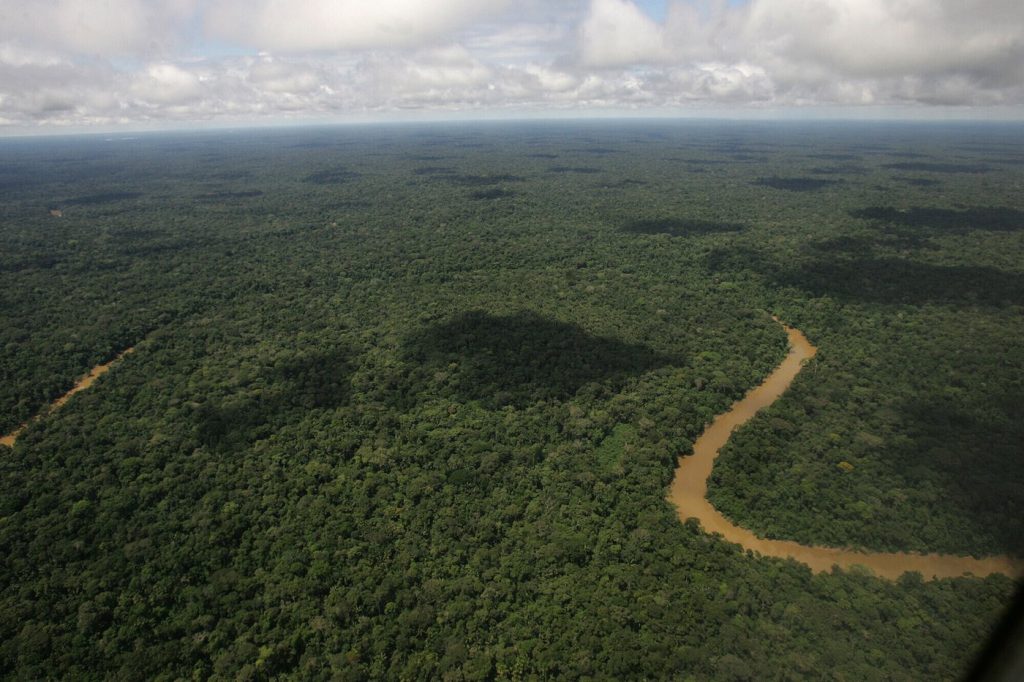BOGOTA, Colombia (AP) — Two years ago, Ecuadorians celebrated a significant victory for environmental protection when they voted to prohibit oil drilling in Yasuni National Park, a treasure trove of biodiversity. This decision aligned with Ecuador's reputation as the first nation to integrate the "rights of nature" into its constitution, alongside being home to parts of the Amazon rainforest and the Galápagos Islands.
However, recent developments under President Daniel Noboa have raised alarm among environmentalists and Indigenous leaders, who are concerned that Ecuador's commitment to environmental sustainability and civil society protections are deteriorating. Noboa's administration has proposed abolishing the independent Environment Ministry and is advancing legislation that, while targeting illegal mining, critics fear may severely impact nonprofit organizations.
In a troubling move, the National Assembly, under pressure from Noboa, passed a law that permits private and foreign entities to co-manage conservation zones. Critics argue this law undermines existing protections and endangers Indigenous land rights. Additionally, Ecuador's recent oil agreement with Peru aims to facilitate drilling in sensitive ecological zones.
Natalia Greene, an environmental advocate with the Global Alliance for the Rights of Nature, remarked that integrating the Environment Ministry with the Ministry of Energy and Mines could exacerbate issues of illegal gold mining associated with organized crime. She criticized the decision as akin to "putting the wolf in charge of the sheep," suggesting that it prioritizes resource extraction at the expense of environmental safeguards.
Noboa justifies these controversial changes as essential for reducing bureaucracy and addressing Ecuador's financial crisis. His administration asserts that the consolidation of ministries will enhance decision-making efficiency. Nonetheless, neither the Ministry of Energy and Mines nor Noboa's office has responded to inquiries from The Associated Press.
In July 2023, Ecuador and Peru formalized a deal for Ecuador's state oil company to directly sell crude oil to Petroperu, with operations expected to commence in January 2026. Environmental activists contend this arrangement may circumvent necessary environmental protections and Indigenous consultations. Peru's Achuar, Wampis, and Chapra nations publicly condemned the deal, fearing it undermines long-standing rights requiring community consultation prior to any land development.
Nemo Guiquita, a Waorani leader from the Confederation of Indigenous Nationalities of the Ecuadorian Amazon, expressed concerns about potential violations of Indigenous land rights and the consequent environmental degradation. “There will be a lot of deforestation, contamination of rivers, and destruction of ecosystems, which are vital for our existence as Indigenous peoples,” she lamented.
Ricardo Buitrón, president of the Quito-based environmental group Accion Ecologica, highlighted the inconsistency between recent governmental actions and the public vote to preserve the Yasuni region. He remarked, “A development model is being prioritized that does not care about protecting ecosystems, but about extracting natural resources to the maximum.”
The proposed law formally known as the Organic Law for the Control of Irregular Capital Flows has drawn intense backlash from nonprofits, who have dubbed it the “anti-NGO” law. This legislation applies to over 71,000 organizations nationwide, requiring them to re-register with the government and provide detailed financial disclosures within six months. Critics warn this law could effectively silence dissenting voices by imposing stringent controls on nonprofit activities.
Noboa submitted this bill to the National Assembly on July 29, 2023, and lawmakers had until August 28 to act before it became law automatically. Guiquita emphasized the detrimental impact on Indigenous organizations, many of which rely on donations and support from NGOs to operate. Activists fear that such laws may be used as pretexts for dissolving organizations that challenge the government's policies.
Kevin Koenig of Amazon Watch remarked that the recent legislative changes reflect a broader trend of regressive reforms across Latin America, threatening environmental protections, Indigenous rights, and basic civil liberties. These developments raise concerns ahead of the upcoming COP30, the United Nations climate summit set to take place in Brazil later this year.
Civil society groups are mobilizing opposition to these changes. Greene mentioned that organizations reactivated the Asamblea Nacional Socioambiental, a coalition of environmental and social movements, to mount legal challenges and organize demonstrations. Many observers worry that Ecuador's status as a global leader in environmentalism is in jeopardy.











